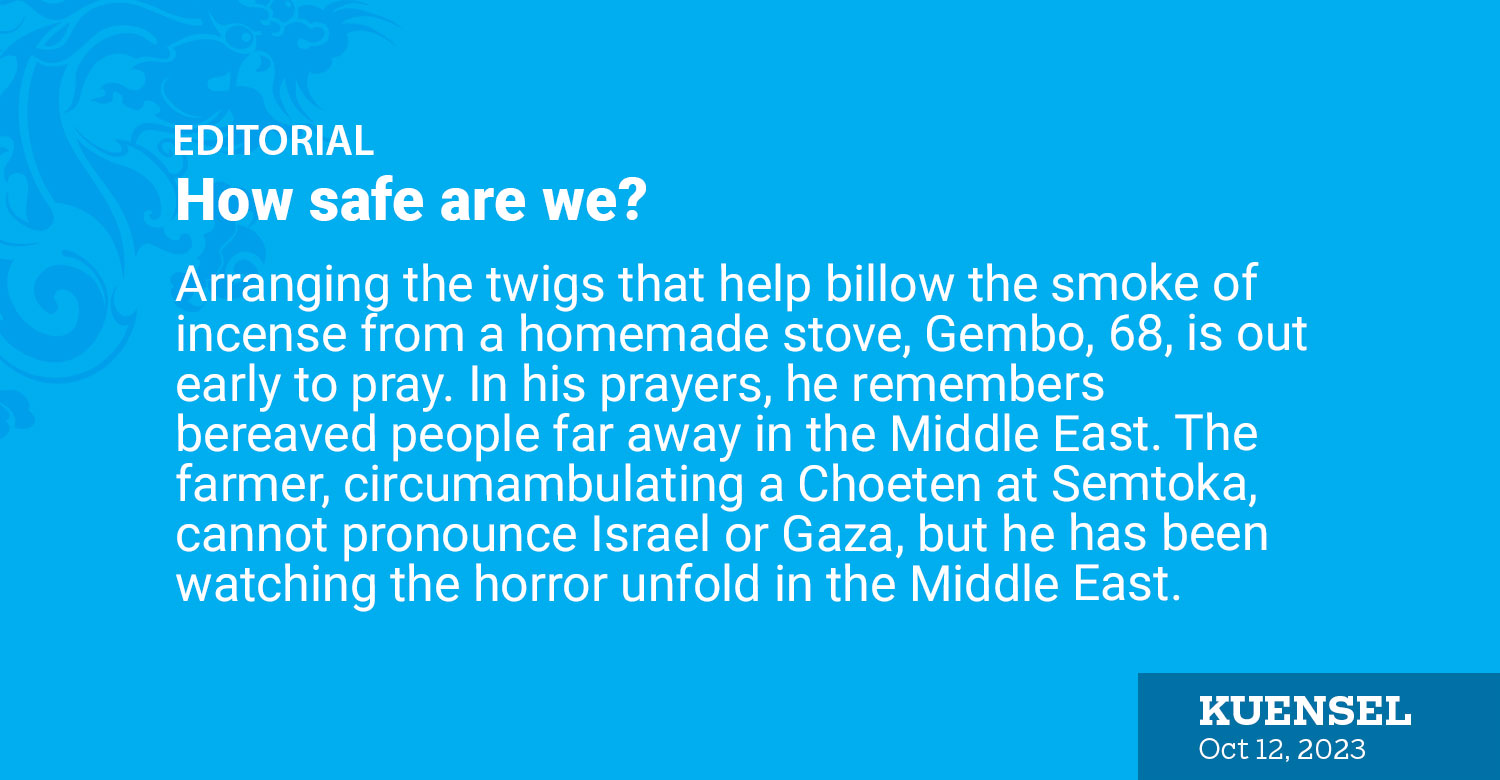Arranging the twigs that help billow the smoke of incense from a homemade stove, Gembo, 68, is out early to pray. In his prayers, he remembers bereaved people far away in the Middle East. The farmer, circumambulating a Choeten at Semtoka, cannot pronounce Israel or Gaza, but he has been watching the horror unfold in the Middle East.
He is shocked at the events around the world. The news he closely watches every evening, he says, is disturbing. He considers himself lucky to have been born in Bhutan. The confidence comes from being born in a blessed country, he believes.
Gembo may be a pious Bhutanese who believes in Karma or fate (the effect from cause). Like him, considering the disasters occurring all across the world, many feel that Bhutan is a blessed country, spared from disasters – natural or manmade. With the internet, cable television, and social media pushing global or regional events to simple Bhutanese like Gembo with a smartphone, many are reflecting on events in the country.
Our concerns about an economic downturn, traffic accidents, smuggling banned substances, and emigration are genuine. But compared with what is happening around us, many feel that our concerns are petty. Even as we complain of inflation, water shortages, or traffic congestion, we are realising how earthquakes in Afghanistan killed hundreds and left thousands more homeless in Afghanistan, the recent flash floods that killed scores of people in neighbouring Sikkim, or how innocent people are gunned down and cities getting bombarded in Israel and Palestine.
Many appreciate being born or living in our beloved Drukyul only when events outside put lives at risk or make us appreciate where and who we are. The year so far had been disastrous for mankind. From wildfires in America, floods in much of Asia, and now the war in the Middle East has disrupted normal life. The realisation is that not much is in our hands and that we are fortunate to be drawn into conflicts or become victims of disasters.
That we are a blessed country is being recognised as many relate to what is happening around the world. A lot of countries are caught up in the recent conflict in the Middle East. There were scores of people from Thailand, Nepal, and India who lost their lives in the unfortunate events in Israel and Palestine. The countable Bhutanese in the region are safe. They would be thanking our protective deities and the kurims our dratshang perform on a daily basis.
It is not often that we get to appreciate being born or living in our small peaceful country. Nor do we reflect on it in peaceful times. As Gembo says, we live in a choedhen gi gyalkhab (blessed country), often spared by disasters and conflicts that the rest of the world is seeing now and then.
However, this is not to say that we should be complacent in believing that we are safe or far removed from global conflicts or disasters. The recent flash flood in neighbouring Sikkim is a good lesson to prepare for possible disasters. The geographical similarities, the preparedness, and the damage caused are a stern warning for us.
Are we prepared? Do we have early warning systems? Were we able to convince people of the impending threats from glacial lake outburst floods? It is a good time to relook into our policies and priorities.


